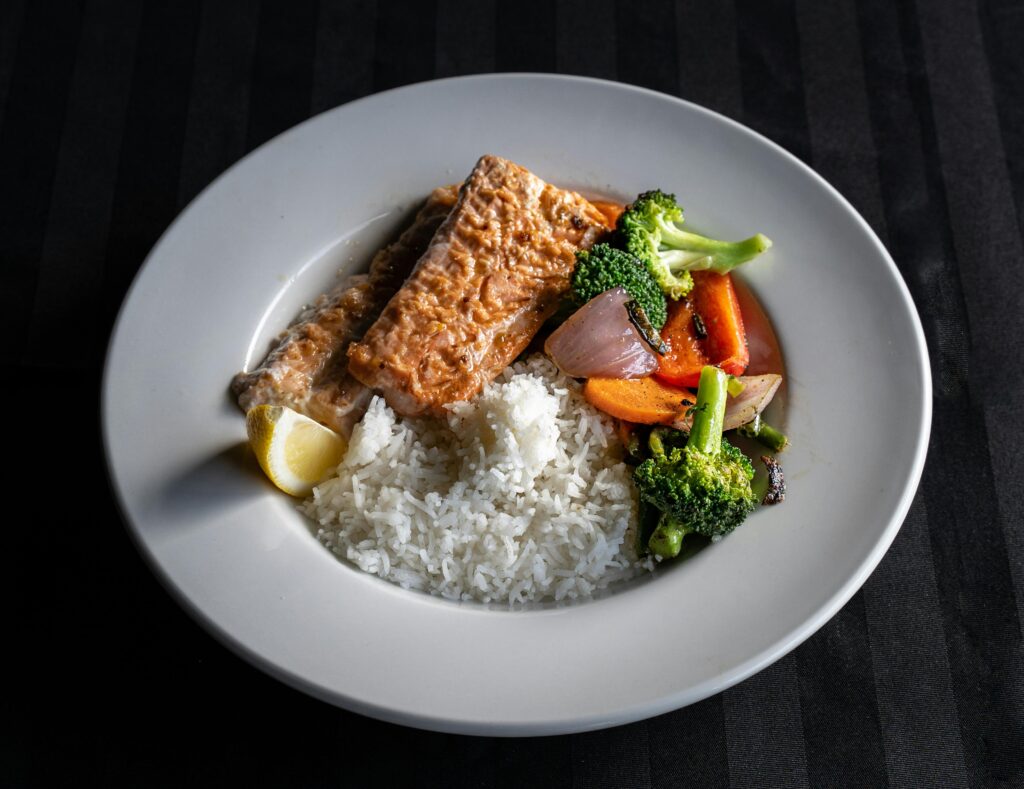Melanoma is a sobering reality that can send chills down our spines. But what if our everyday meals held the potential to stand as our first line of defense against this significant challenge? There’s more to our kitchen than meets the eye, and today, we’ll explore how dietary strategies reduce melanoma risk.

Bite into Benefits: Food’s Natural Armor.
Eating healthy isn’t just about appearance; it can protect against melanoma and promote overall well-being. Certain foods harbor compounds and nutrients that play a crucial role in dietary startegies against skin cancer:
- Cruciferous Veggies: Broccoli, kale, and their green comrades are rich in sulforaphane, a compound garnering attention in melanoma research.
- Fatty Fish: Partner with salmon, mackerel, and other omega-3-rich fish to bolster your defenses against melanoma.
- Berries: Berries, bursting with antioxidants, combat free radicals and aid in cellular protection.
- Green Tea: Beyond relaxation, green tea boasts polyphenols that exhibit potential anti-melanoma properties.

Dodging the Dietary Duds
While some foods empower us in the battle against melanoma, others may fuel the flames. Processed foods, often laden with additives and preservatives, should be limited as they can undermine skin health. Similarly, excessive consumption of refined sugars contributes to inflammation and cellular damage, potentially increasing melanoma risk. Additionally, charred or overly grilled meats contain carcinogens that may further elevate the risk of skin cancer. To minimize these risks, it’s essential to prioritize whole, unprocessed foods and adopt cooking methods that preserve the integrity of ingredients, such as steaming, baking, or grilling at lower temperatures.

FAQs: Chew on This!
- Do dietary changes guarantee melanoma prevention? While adopting a healthy diet can lower the risk, it’s not a fail-safe solution. Lady In The Shade tip: it should be part of a comprehensive approach to melanoma prevention.
- Is it just about what I eat? No, holistic health practices like hydration, moderate alcohol consumption, and balanced nutrition are vital in reducing melanoma risk.
- What about supplements? While tempting, whole foods offer a synergistic blend of nutrients that supplements may lack. Always consult a healthcare professional before incorporating supplements into your regimen.

A Culinary Conclusion: The Last Bite
Knowledge is empowering, but action is transformative. Begin with manageable dietary adjustments, such as incorporating a berry smoothie for breakfast or swapping red meat for grilled fish. Over time, these changes can become ingrained habits, promoting long-term health benefits. Remember, no single food can guarantee immunity against melanoma, but strategic dietary choices empower us to take proactive steps in defense. By aligning our culinary habits with knowledge and awareness, we cultivate a nourishing shield against one of the most formidable adversaries to skin health.
Find Your Shade,
Jordan, Lady In The Shade
Medical Disclaimer: The information on this blog is for informational purposes only and is not a substitute for professional medical advice, diagnosis, or treatment. Always seek the advice of your physician or other qualified health providers with any questions you may have regarding a medical condition. Never disregard professional medical advice or delay seeking it because of something you have read on this website.